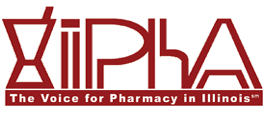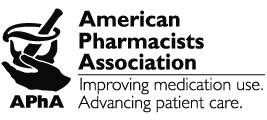Understanding the Complaint Process Against Illinois Physicians
 According to the Illinois Department of Financial and Professional Regulation, there are around 3,000 complaints filed each year against doctors and other medical professionals. There are many reasons why a physician or medical professional could have a complaint lodged against him or her -- and there are 50 different actions specified in the Illinois Medical Practice Act of 1987 that could result in disciplinary action against a physician. Some of the most common complaints include unprofessional conduct and substandard care, but any complaint is a possible threat to your medical license. It is important to understand the process of a complaint if you have one filed against you.
According to the Illinois Department of Financial and Professional Regulation, there are around 3,000 complaints filed each year against doctors and other medical professionals. There are many reasons why a physician or medical professional could have a complaint lodged against him or her -- and there are 50 different actions specified in the Illinois Medical Practice Act of 1987 that could result in disciplinary action against a physician. Some of the most common complaints include unprofessional conduct and substandard care, but any complaint is a possible threat to your medical license. It is important to understand the process of a complaint if you have one filed against you.
Initial Claims Are Made
When an initial claim is made to the Board about allegations against a physician or other professional, the complaint process is started. The disciplinary board will provide the complainant with information about the complaint process and information on whether or not the claim has become a complaint and why. The claims are forwarded to the Chief of Medical Investigations to determine whether or not the claim will become a complaint.
Claims Are Examined
Once the Chief receives a claim, they will examine all information and determine if the claim becomes a complaint. If the claim does not become a complaint, the Chief will submit his or her findings on why the claim has not progressed and his or her recommendations for closure. If the claim does become a complaint, the Chief will work with a medical coordinator to determine if the complaint is ready for immediate consideration for prosecution potential.
Investigation Takes Place
Once the claim becomes a complaint, the Chief and medical coordinator will launch an investigation into the complaint. They will work to gather evidence and information to support or deny the complaint. This can include talking to the physician in question, other physicians he or she works with or other medical professionals who work with the physician.
Negotiations
Once the investigation has taken place, the Division of Professional Regulation can choose to enter into negotiations to resolve issues informally, including holding informal conferences. Informal conferences are used to review the compliance of the physician in question, discover facts about the case and discuss issues related to the case. The informal conference can result in the case being closed, investigation to move forward, a consent order to be entered or a formal hearing to be conducted.
Resolutions
If a consent order is entered, it can contain disciplinary actions, such as reprimand, suspension, revocation, probation or fines. It can also contain non-disciplinary actions like remedial continuing medical education, referral to treatment or an administrative warning. The Disciplinary Board will ensure the actions of the consent order are seen to. If a formal hearing is requested, one will be held and the Board will take formal action.
Get in Touch With an Illinois Medical Board Defense Attorney
If you have had a complaint lodged against you, it is imperative that you get it straightened out right away with help from an Illinois medical board defense lawyer. If not, you could face disciplinary actions that could affect the rest of your career. At The Law Offices of Joseph J. Bogdan, Inc., we can help you defend against any complaints that may have been brought against you. Call our office today at 630-310-1267 to schedule a free consultation.
Source:
http://www.ilga.gov/commission/jcar/admincode/068/06801285sections.html














